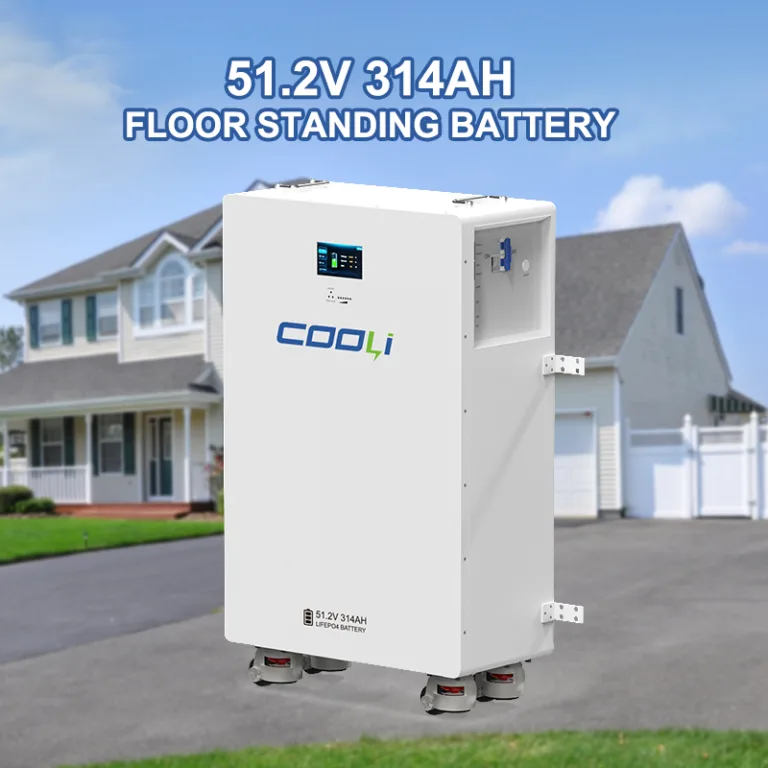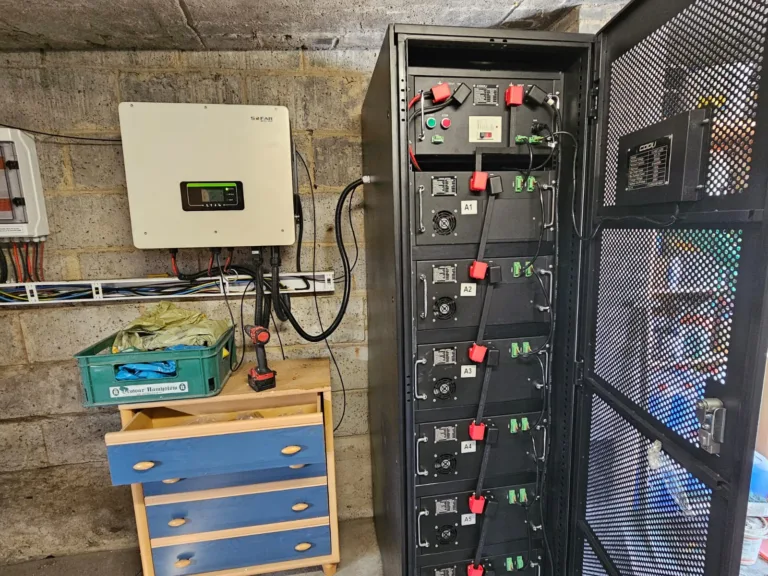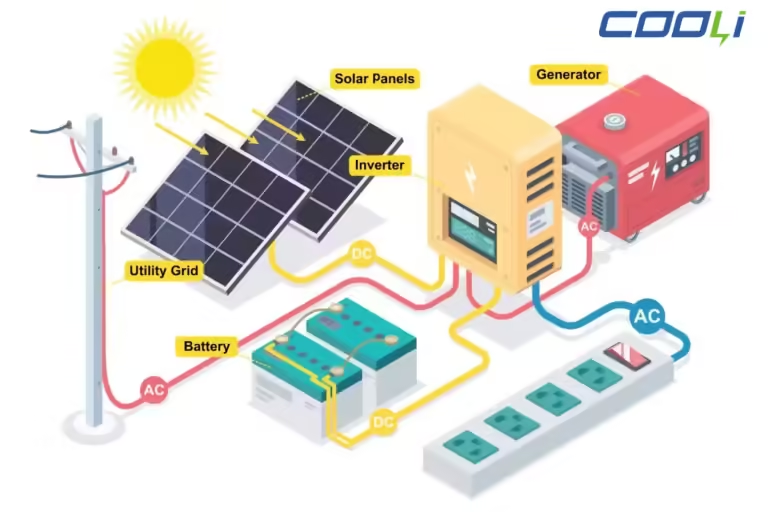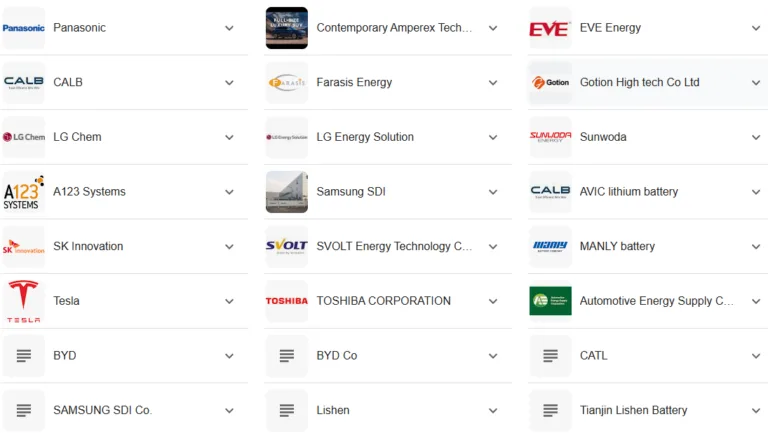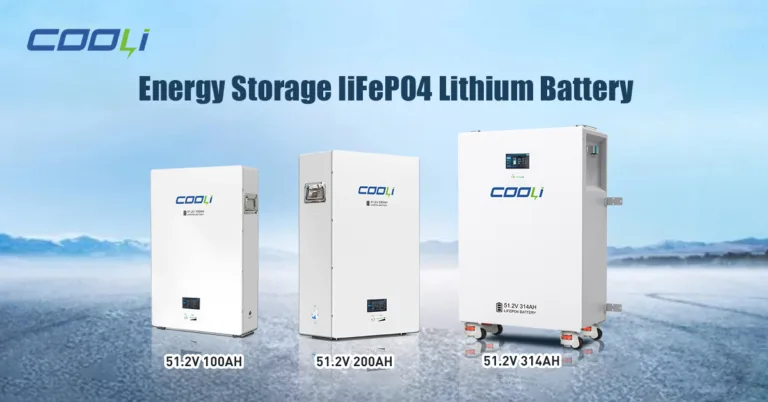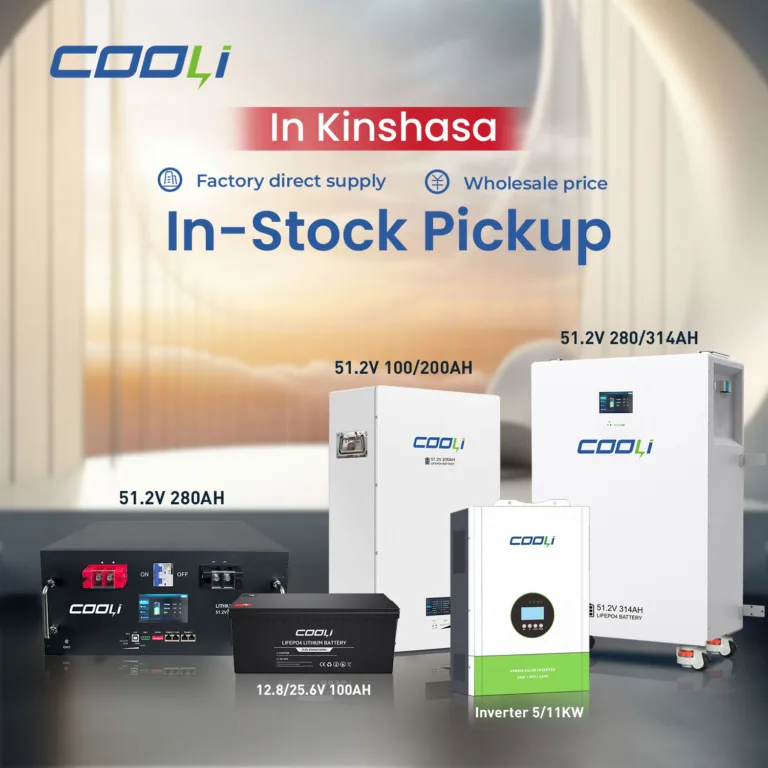24V vs 48V Lithium Battery: 5 Key Differences to Boost Efficiency!
24V vs 48V Lithium Battery – Which is Best for Your Solar System
When selecting a battery system for electric vehicles, solar setups, or industrial equipment, the choice between 24V and 48V lithium batteries is critical. This guide breaks down their differences in performance, efficiency, and suitability for various applications—helping you make an informed decision.
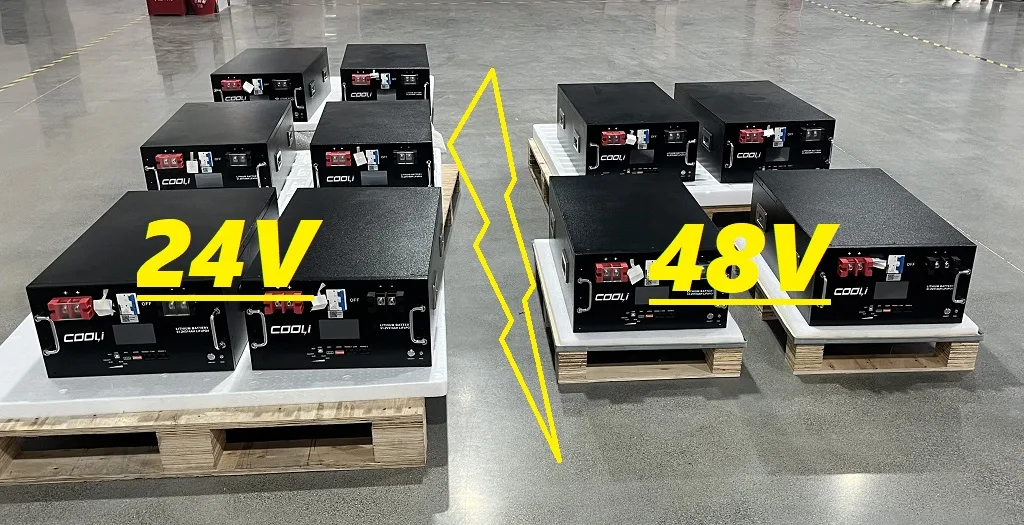
1. Voltage and Battery Configuration
The most obvious distinction lies in their voltage:
- 24V systems are built by connecting two 12V lithium batteries in series.
- 48V systems require four 12V lithium batteries in series to achieve higher voltage.
Higher voltage in 48V systems translates to greater energy density and reduced current flow, minimizing energy loss during transmission. This makes 48V ideal for high-power applications like electric forklifts or solar inverters.
2. Power Output and Efficiency
For Electric Vehicles (EVs)
- 48V lithium batteries deliver 30–50% more power than 24V systems, enabling faster acceleration and better uphill performance.
- Range: A 48V 24Ah lithium battery can power an e-bike for ~80 km, while a 24V equivalent may struggle to reach 60 km.
For Inverters
- A 48V inverter handles higher loads (e.g., air conditioners, industrial tools) with lower energy loss due to reduced current. This improves efficiency by up to 20% compared to 24V inverters.
- 48V systems also require thinner wiring, cutting installation costs.
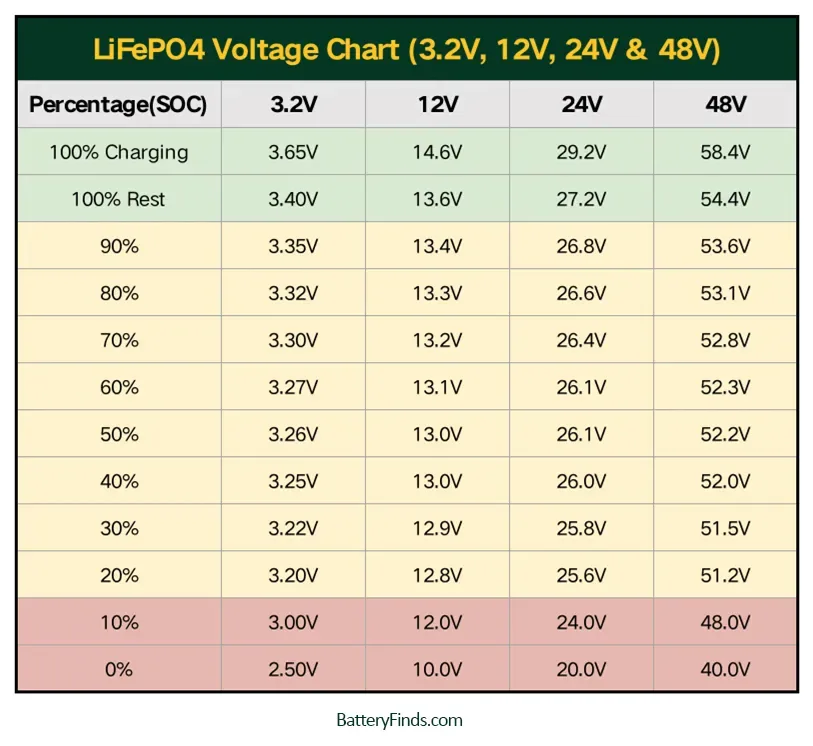
3. Solar Systems: 24V vs 48V
For off-grid solar setups:
- 48V systems are more efficient for large installations (e.g., homes, solar farms). They reduce transmission losses and support high-wattage appliances.
- 24V systems suit smaller setups (e.g., RVs, cabins), balancing affordability and moderate energy needs.
| Factor | 24V System | 48V System |
|---|---|---|
| Upfront Cost | Lower (650–650–1,300) | Higher (920–920–1,500) |
| Efficiency | 80–85% | 90–95% |
| Best For | Small-scale use | Large-scale use |
Data from lithium and sodium battery comparisons.
4. Battery Lifespan and Durability
- Cycle Life:
- Quality 48V lithium batteries (e.g., LiFePO4) last 10+ years with 3,000+ cycles.
- 24V lithium batteries average 5–6 years (1,000 cycles) but vary by usage.
- Temperature Tolerance:
- 48V sodium batteries retain 90% capacity at -20°C, outperforming lithium in cold climates.
5. Safety and Maintenance
- 48V systems often include advanced BMS (Battery Management Systems) to prevent overheating and overcharging.
- Both voltages require:
- Avoiding water exposure to connectors.
- Storing in dry, cool environments (avoid direct sunlight).
6. Which Is Better? Key Considerations
Choose 48V lithium batteries if:
✅ You need high power output (e.g., EVs, industrial machinery).
✅ Prioritize long-term savings (lower energy loss, extended lifespan).
✅ Operate in cold climates (opt for sodium variants).
Choose 24V lithium batteries if:
✅ Budget is limited.
✅ Your setup is small-scale (e.g., home solar, UPS).
✅ Weight reduction is critical (24V packs are lighter).
Final Thoughts
For most high-demand applications—solar farms, electric forklifts, or performance-focused EVs—48V lithium batteries are the clear winner. However, 24V systems remain a cost-effective solution for smaller, less intensive needs. Always factor in voltage requirements, load capacity, and environmental conditions to optimize your investment.
Need help choosing? Consult professionals or explore hybrid systems that combine both voltages for balanced performance!
5kWh LiFePO4 Battery in Vietnam 10kWh Energy Storage Solutions for Yemen 15kWh LiFePO4 Solar Storage 15kWh Solar Battery 24V vs 48V Lithium Battery 48V Lithium Batteries 51.2V 200Ah 10kWh Battery 51.2V 200Ah LiFePO4 Batteries Wholesale 150kW Solar System 300Ah 51.2V Floor Standing Battery Battery IP Ratings battery manufacturer in China Best LiFePO4 Batteries Engineered for Middle East Desert Best Lithium Battery in Pakistan Bulk Buy Home ESS China DDP Wholesale China Sourcing Tips China’s Top Battery Manufacturer Custom Household Batteries Direct Factory Custom Lithium Batteries Depth of Discharge (DoD) energy storage battery Grade A Battery home energy storage Lead-Acid to Lithium LiFePO4 batteries LiFePO4 Batteries in Australia LiFePO4 Batteries in the Philippines LifePo4 battery LiFePO4 Battery Manufacturers LifePO4 Battery Technology LiFePO4 Battery vs. Lithium-Ion LiFePO4 vs NMC Home ESS Lithium Battery Manufacturer Lithium Battery Safety Tips lithium ion battery Market Trends Off-Grid Solar Batteries for European Homes Reliable Home Battery Bulk Suppliers Solar Batteries in Syria Solar Panel solar system Top 10 Home Battery Alibaba Suppliers Verified Wall-Mounted Lithium Batteries Wall vs Rack Batteries


